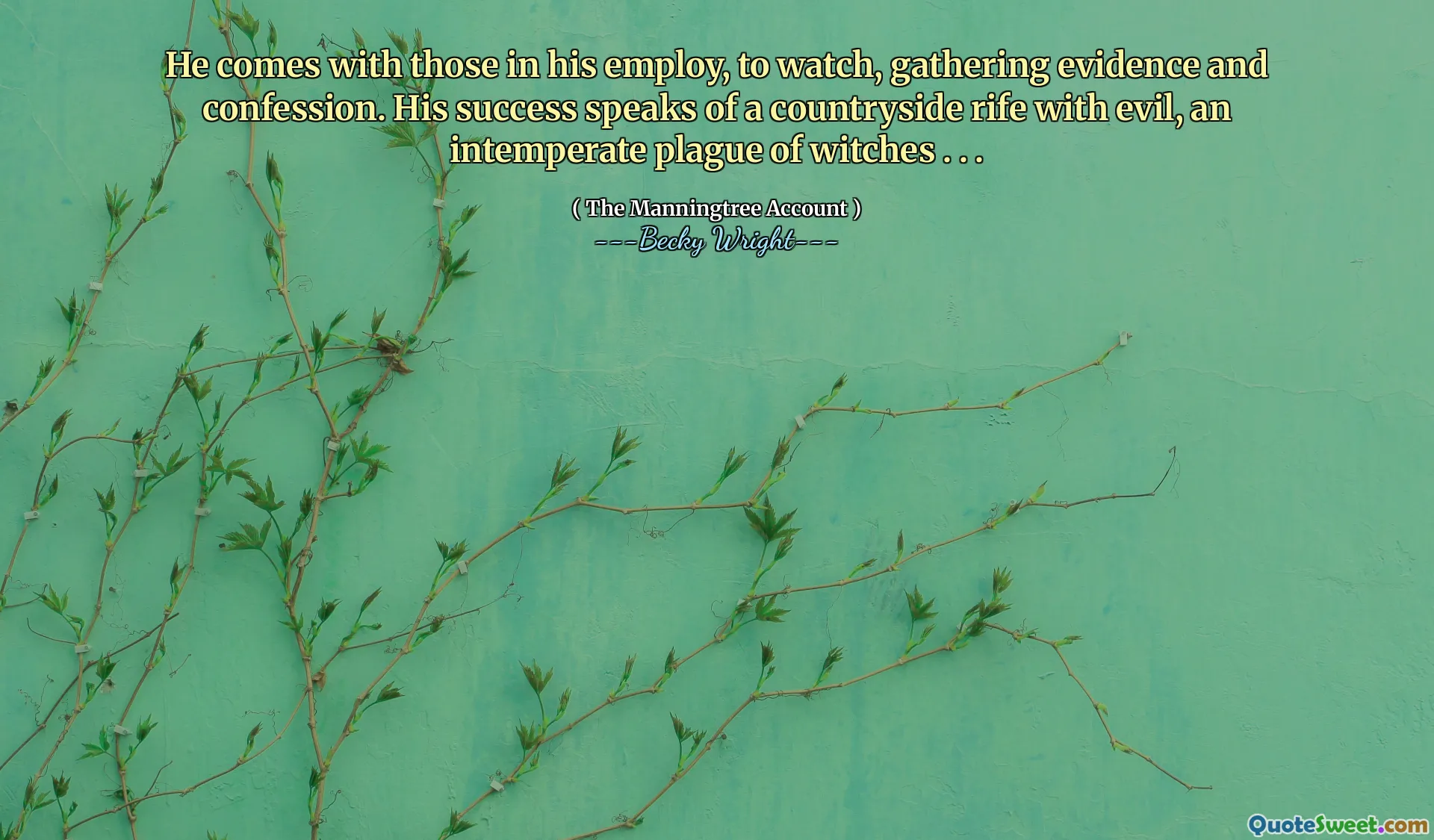
He comes with those in his employ, to watch, gathering evidence and confession. His success speaks of a countryside rife with evil, an intemperate plague of witches . . .
This quote from Becky Wright's The Manningtree Account vividly captures a moment steeped in tension and suspicion during the witch trials era. The imagery of 'those in his employ' suggests a figure of authority surrounded by enforcers or assistants, highlighting the organized nature of these oppressive investigations. The process of 'watching, gathering evidence and confession' points to a systematic and possibly invasive pursuit of perceived guilt, something that resonates with historical witch hunts where the lines between justice and tyranny blurred significantly.
What stands out starkly is how the quote paints the countryside as ''rife with evil,'' a depiction that underscores the paranoia and fear gripping the community. The phrase 'an intemperate plague of witches' is particularly powerful – it suggests not only a widespread belief in the presence of witches but also an uncontrollable, almost contagious spread of this fear. This can be interpreted as a metaphor for how hysteria can permeate a society, fueling accusations and disrupting social cohesion.
Reflecting on this quote in a broader context, it reveals much about the mechanisms of power, fear, and control. The men who 'come to watch' are also agents of a moral panic that can lead to devastating consequences for the accused. The description evokes empathy for the victims of these trials, and invites readers to question how societal fears can lead to destructive actions justified under the guise of righteousness. Moreover, it challenges modern readers to consider how similar dynamics might still operate today under different guises, reminding us of the importance of justice tempered with compassion and reason.


